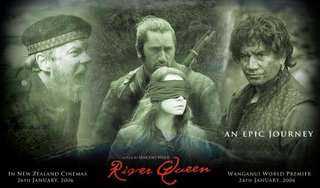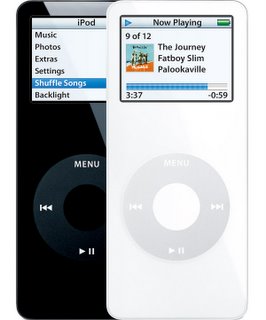1. Digital Cities
1.1 Warm fuzzy initiative
The government in New Zealand has made $24 million available under the ‘Digital Cities’ scheme to drive new infrastructure developments in the country. Cities can apply for funding of projects under the scheme.
While the project has been widely applauded, and indeed on paper it looks like a warm fuzzy initiative, I would challenge the reality.
1.2 Where is the blueprint?First of all, as I said when the regional telecoms infrastructure Probe project started up several years ago, where is the blueprint, what infrastructure is in place and can be used and where are the black spots? Although some work has been done on this during the Probe 2 project, I have been unable to uncover anything that looks even vaguely like a blueprint. I know attempts have been made, but without far more stringent government direction attached to the scheme, nothing significant has eventuated.
1.3 Not $24 million – $500 million is needed
Over the last few years I have indicated that approximately $500 million is needed, over the next 5 to 10 years, to future-proof telecoms infrastructure in economically non-viable areas. So in that respect the $24 million is a total farce. This money would, in my opinion, have been better spent in creating a master plan, doing a national infrastructure inventory and getting together those involved in infrastructure to assist in finding the right solutions. This should include alternative providers such as government networks, fx networks, TelstraClear, utilities and railways.
Once such a master plan is in place, projects can be selected and investment plans can be developed, perhaps on a $for$ basis. The current $24 million is so small that it will not motivate the cities or their partners to seriously fund the other 95% of the costs of such projects.
1.4 Power to the citiesI do like the aspect of the project in which the cities are becoming involved. Over the last five years I have visited 50 local councils and ‘preached’ the message of the broadbanding of their local communities. From experience I know that a lot of education is required to get a more widespread understanding of the need for such projects. Without a due diligence project aimed at doing so the response from the cities will, at best, be lacklustre. I have fine-tuned this process and will be happy to make a report available, free of charge, in which I outline the aspects of such projects.
Given a master plan and well-informed councils, it would be possible to proceed to the next level. Interestingly, once councils are convinced of the importance they can greatly facilitate the broadbanding of their local communities. They can make facilities available, and promote the benefits of it to their citizens. This alone could bring the costs of these projects down by as much as 30%. In other words, theoretically you then only need $350 million instead of $500 million, and under a $for$ funding the government contribution can also be equally reduced.
1.5 Ultimate solution is structural separationTo throw all of the above into disarray; another alternative is to structurally separate Telecom and give the infrastructure company generated from such a split a regulated infrastructure monopoly in all areas, except perhaps the CBDs. The network, however, needs to be an open network for everybody, to be used on equal terms.
Needless to say, the infrastructure company must be able to earn a decent ROI.
While it might be difficult for the government to embark on such an ambitious project, over time it will happen anyway. The Internet economy requires an open network infrastructure and Internet companies are already in the process of bypassing the incumbent networks (cherry-picking). I question if this is actually in the national interest, or in the interest of, for example, Telecom. So, if an open network is the inevitable end result, the clever approach for all parties involved would be to start moving in that direction now.
Once this is happening you will actually also begin to see the digital city networks being gobbled up again by the national infrastructure providers. As with all infrastructure, this is a big boys’ club – it needs deep pockets and it requires scale. Just take a loot at the other local utilities-based infrastructure projects over the last 100 years and you will see that this process is a recurring one.
1.6 Value-added infrastructure servicesThe infrastructure companies have more than ample opportunity to increase their revenues, as the Internet economy requires a whole range of value-added services such as datacentres, CRMs, billing, network management, security, transactions, content hosting, etc.
The retail company can then show its true marketing and sales skills in winning over customers, based not on a monopoly position but on their retail customer service skills – all of this in competition with its rivals who will be able to ‘own’ their own customers and do all of their own marketing and sales activities quite independently of Telecom Retail.
1.7 Reaction from the MinisterThe Minister David Cunliffe responded to my comments in The Line, by saying that I was placing too much reliance on Government policy for achieving the goals of the strategy.
My response to the Minister is that I sincerely hope to be proven wrong. I very much support the idea of Digital Cities. However, based on my 5 years of experience with digital cities projects I very much disagree that this can be driven without strong government policies.
If in a year or so if the Minister is proven to be right and I am wrong I will shout him a first class dinner with first class wine. I would loved to be proven wrong on this matter
2. Mobile analyses and key trends2.1 Econet’s arrival in New ZealandIn a daring attempt to break open the heavily guarded New Zealand mobile market, minnow EcoNet has launched its plan to enter the market as the third player – initially in Auckland and, if successful, expanding throughout the country.
In previous analyses I have said that I couldn’t see TelstraClear entering the mobile market. However, I indicated that there was an opportunity for it to look at wireless broadband which, within the not too distant future, can also deliver VoIP. This didn’t eventuate. Re EcoNet, I argued that its only opportunity would be as a price buster. I recently reported from my trip to India that Barti is able to profitably offer $5 a month mobile packages in that country.
As New Zealand has amongst the highest mobile charges in the developed world, there obviously are great opportunities. I argue that Econet could offer discounts as large as 50% based on some of the current prices.
All great news for competition and I will most certainly be cheering them on. However, there is little hope that Vodafone and Telecom will let Econet get away with this. At best they will allow them to capture less about a 10% market share, to keep the regulator off their backs – but not much more. Therefore Econet will rely on active regulatory intervention to make this happen. So far the country has not shown great leadership on regulatory issues, so I think that the company will face an uphill battle here also.
However, with Econet New Zealand does have a chance to bust the cosy duopoly, and, even if Econet fails, its effect on the New Zealand market will be positive. I, of course, would like to see it succeed, to become a strong new player in the market. I will be keeping a close watch on its progress over the next year, and especially, of course, once it launches the service, planned for 2007.
2.2 Where to go from here, Vodafone?After successfully establishing itself as the leader in the mobile market Vodafone has now reached the point where it will have to move in new directions.
It could continue to take more market share away from Telecom, but that would only draw more attention from the regulator, so that is not necessarily the best strategy.
Vodafone’s strong position here, where it basically can set the mobile agenda is a serious threat to Telecom.
2.3 Telecom leaves itself vulnerable
Of course, they do have the option to start attacking Telecom in the fixed voice market. Telecom is extremely vulnerable here, as it still relies far too much on the traditional voice services. It is failing to transfer customers to broadband where it would have a much better chance of growing new revenue streams and building up protection against any substitution attacks from Vodafone.
The longer it waits with this the more vulnerable it will be, and eventually Vodafone will bite the bullet and introduce capped prices that will allow it to move into this market.
It requires number portability to be in place and Vodafone is now a prisoner of its own poor tactics - in the early days it was party to the procrastination on portability and is now paying the price. F2M opportunities will also be limited by the antiquated Kiwi Share Obligation that successive governments have merely tinkered with and that is central to the preservation of Telecom's monopoly
But nevertheless, without any serious competitive pressure, the company will be reluctant to drive prices down to such an extent that a substantial number of customers will move over to Vodafone. Prices will need to drop to below $25 per month to get substitution effects of close to 10%.
The company can also move into wireless broadband; however the current 2G and 3G networks prevent it from offering competitive services in this market. After ten years of trying to flog mobile data services the results have been miserable. Of the 15% non-voice services over mobile networks, roughly 10% is messaging, 2%-4% ringtones and wallpaper, with only 1% being true mobile data services. The business model based on mobile networks (which are optimised for voice services) simply doesn’t stack up for wireless broadband services, which require, not only high speeds, but also low prices (think Internet).
2.4 Wireless broadband opportunities for mobilityWireless broadband (WiMAX) could offer the solution here and perhaps 4G would be another alternative. But mass markets are still at least two to three years away.
So it will be interesting to see in which direction Vodafone will jump. My bet is that it is not in a hurry to jump in any direction soon. Yet it will continue to make noises that make Telecom nervous, and a nervous Telecom will be making mistakes – and that’s when Vodafone will go in for the kill.
Ultimately I believe the future for Vodafone lies in the mobility market. Over the next ten years the mobile voice market, now 90% of its business, will be transformed into a wireless broadband market (90% data-driven), offering broadband products around mobility – think ipods, video pods, Blackberries, games and music devices all linked to ubiquitous wireless broadband networks (WiFi and WiMAX).
There will be many more, and the key function will be around mobility applications. All these devices will also be able to handle voice (VoIP).
This market is still greatly under-developed, but we will catch the first glimpse of the future later on in 2006. Ultimately I see the wireless broadband and mobile markets merging.

 My Hot Technology column in the Herald on Sunday gives some tips on things to watch out for when buying an mp3 player. I post it below along with my top five picks for mp3 players...
My Hot Technology column in the Herald on Sunday gives some tips on things to watch out for when buying an mp3 player. I post it below along with my top five picks for mp3 players...

